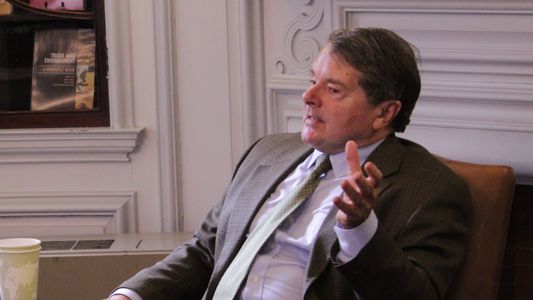Hare Unpacks the Role of Middle East in Gaza Peace Plan
Professor Paul Webster Hare penned an opinion piece that delved deeper into the recent Gaza peace deal for The Jerusalem Post on October 16, 2025. In the article, the professor explained that Trump has been disproportionately credited with accomplishing the ceasefire and hostage release, even though the plan came to fruition through the efforts of multiple international players, including Qatar, Egypt, Saudi Arabia, the U.A.E., the U.K., and Turkey.

Hare said that Middle Eastern countries such as Saudi Arabia, the U.A.E., and Qatar are Trump’s primary allies and business partners. These countries have also been instrumental in the making of Jared Kushner’s business Affinity Partners. Due to Trump’s personal and business ties, it would be impossible for the president to make any major decisions about Gaza without the approval of Kushner and the Saudis.
“In February 2024, Kushner said that the two-state solution for Israel and ‘Palestine’ was ‘a super bad idea’ and that it was essentially ‘a real estate problem,’” said Hare. “That has all changed now due to Saudi and Qatari pressure. Now the Trump administration has apparently bought into the Saudi vision of the new Middle East, and it does not include an acceptance of Israeli expansion of interest in the wider region.”
Besides having leverage against Trump, the professor asserted that Saudi Arabia and Qatar are employing clever diplomatic tactics by having the American president lead the Gaza plan. As a result, Trump will be responsible for the implementation of the plan and its subsequent consequences for the next three years.
Hare’s full article can be accessed here.
Paul Webster Hare is a master lecturer at the Frederick S. Pardee School of Global Studies. He served as British Ambassador to Cuba from 2001 to 2004 and also represented the U.K. to the European Union in Brussels, New York, Portugal, and Venezuela as deputy head of mission. Hare has extensively written about Cuba for renowned news outlets including The Financial Times, The Atlantic, Newsweek, and The Huffington Post. He is also the co-editor of the Palgrave Handbook of Diplomatic Reform and Innovation, which analyzes current practices of diplomacy and proposes practical solutions to improve diplomatic outcomes.